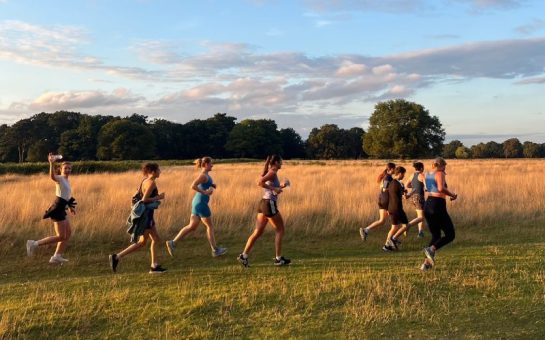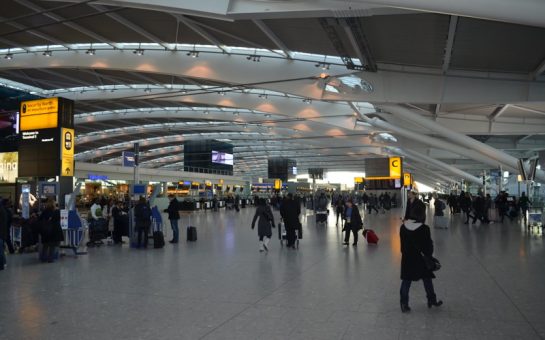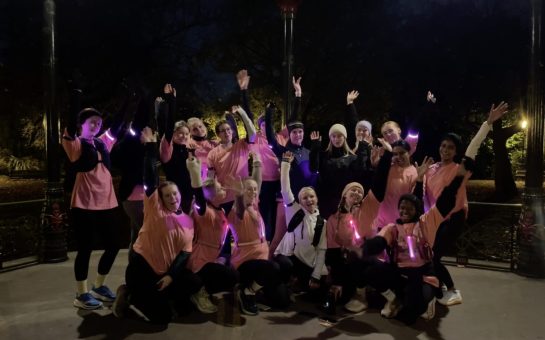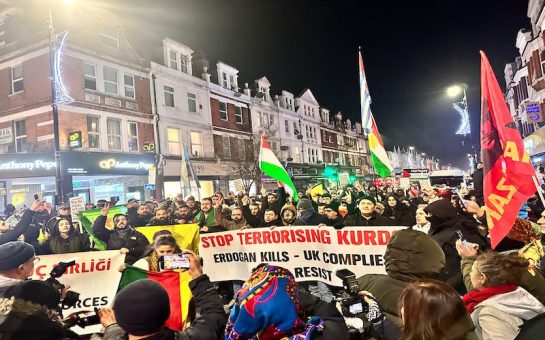The race will go ahead despite the explosions at Monday’s Boston Marathon

With the Virgin London Marathon (VLM) taking place this weekend, it’s safe to say I am feeling precariously unready.
Not being one of the world’s most natural runners, getting up for a 6.00am five miler most mornings seemed like my idea of sadistic self-torture, on top of studying for a journalism diploma.
And with the devastating explosions at the Boston Marathon on Monday, all eyes are on London this Sunday.
“The organisers have a good record in terms of the venue security arrangements for the event, such as you can for obviously an event which covers 26 miles,” said Home Secretary Theresa May, speaking at yesterday’s Commons home affairs select committee.
“I believe they have made a number of adjustments to the arrangements that will be in place for the event.”
When I began to write this there was one question that kept coming back to the surface.
Why would a non-athletic, non-runner, apply for a marathon anyway with zero training? I have always wondered what compels anyone to start running towards or away from nothing in particular.
For me, it seems to be the need to fill a twenty-something void or rite of passage, left by the loss of university life and the prospect of real life.
There was also my decision to abolish the bulges of fat which creep up on you after years of alcohol abuse in the student union.
Aside from these first world problems, the training itself has certainly left its mark on the way I prioritise parts of my everyday life.
As a trainee journalist, balancing my marathon schedule with hours of shorthand practice, reporting and placements has been a challenge.
But with no choice but to balance training with the pressures of everyday life, I have found myself becoming more disciplined in my friendships, at home and going out in order to get everything done.
James Murray, a fellow marathon runner, said: “My morning run actually became the best part of my day. I had to keep my goal in mind, which is what got me out of bed every morning!”
His reason for choosing to do a marathon was not too far from my own.
“I had just come back from six months in West Africa and I wanted to open myself up to a new challenge. The London Marathon is such a massive event that I just wanted to get involved. If you don’t challenge yourself, you never know what you’re capable of,” said James.
“Doing that race taught me that if I set my mind to starting something big, that I want to do, then it’s possible to see it through to the end.”
Of course it isn’t all finish lines and cheering crowds.
I have sacrificed study time, (some) nights out, relationships and had a ridiculous amount of missed calls from friends and family.
My running partner and I between us have suffered shin splints, stress fractures, a sprained ankle and a knee injury over the last six months. It’s safe to say there have certainly been some dark days.
Although perhaps not as dark as the original marathon runner, Pheidippides, a soldier who ran 26.2 miles from a battlefield in the town of Marathon, Greece, to Athens in 490 B.C.
He delivered the message ‘Niki’, meaning victory, then collapsed and died. Perhaps another reason for normal people to not run marathons.
But with the events at the Boston Marathon this week, a new modern meaning to the marathon became clear.
When the attacks on 9/11 occurred in 2001, the New York marathon two months later became a symbol of perseverance for the city, with then cabinet minister John Manley running it as a show of solidarity.
On a smaller scale, this weekend’s marathon will be another show of unity towards unjustified violence. Black ribbons are being handed out to all participants, there will be a 30 second silence at the starting line and runners are being asked to hold their hand over their hearts as they pass the finish line in respect.
Whether you are running as a personal pilgrimage or to get fit, it is certain that you aren’t simply running towards nothing.
The 26.2 mile race may date back 2,500 years, but as the world faces further difficulties, the meaning behind the marathon changes too, bringing a little meaning to the madness with it.
Rachael is raising money for Anthony Nolan, a blood cancer charity. If you would like more information or to donate, visit http://www.justgiving.com/Rachael-Knowles
Photo courtesy of Pablo Gomez [Tucumano in London], with thanks.
Follow us @SW_Londoner




